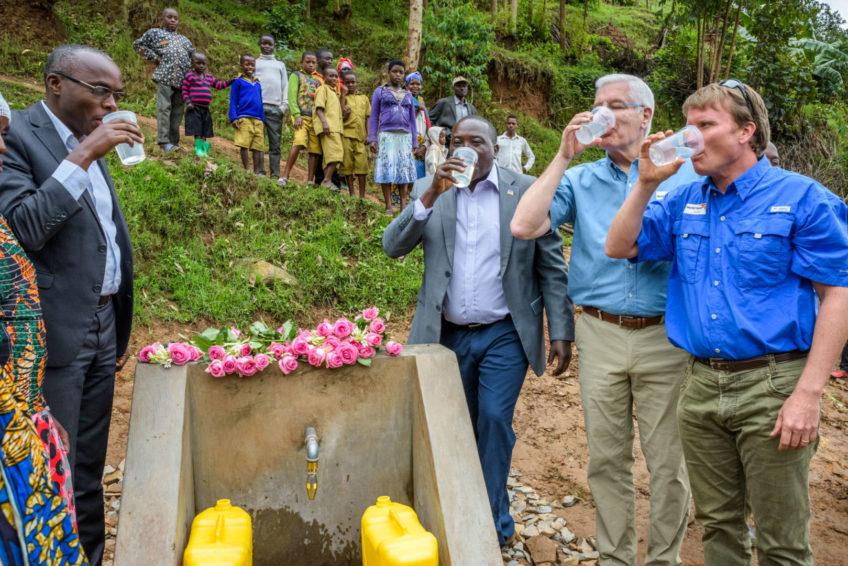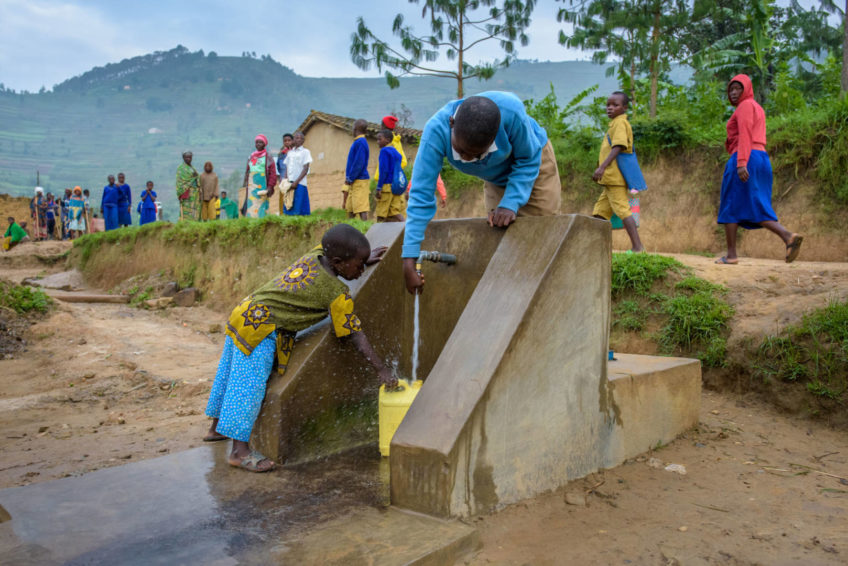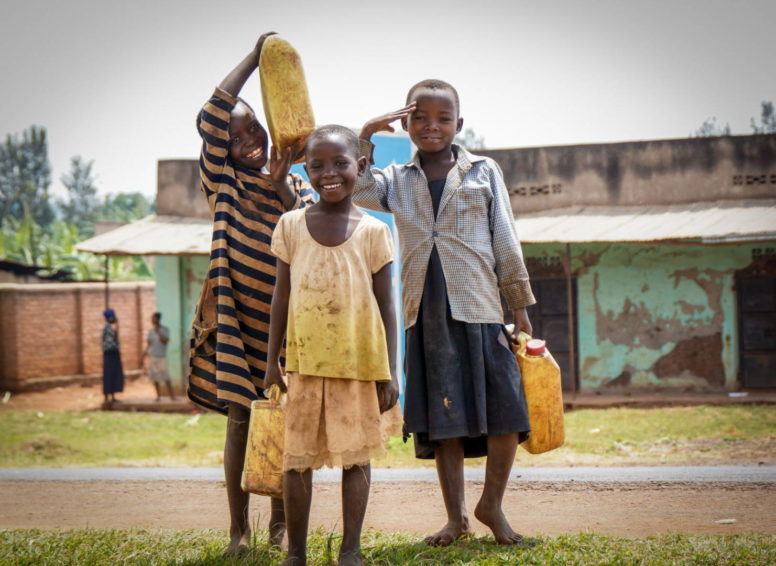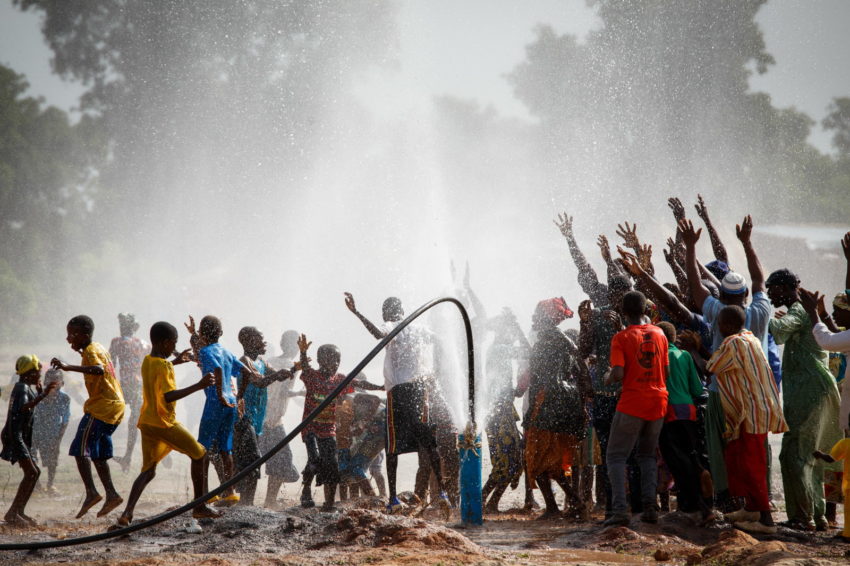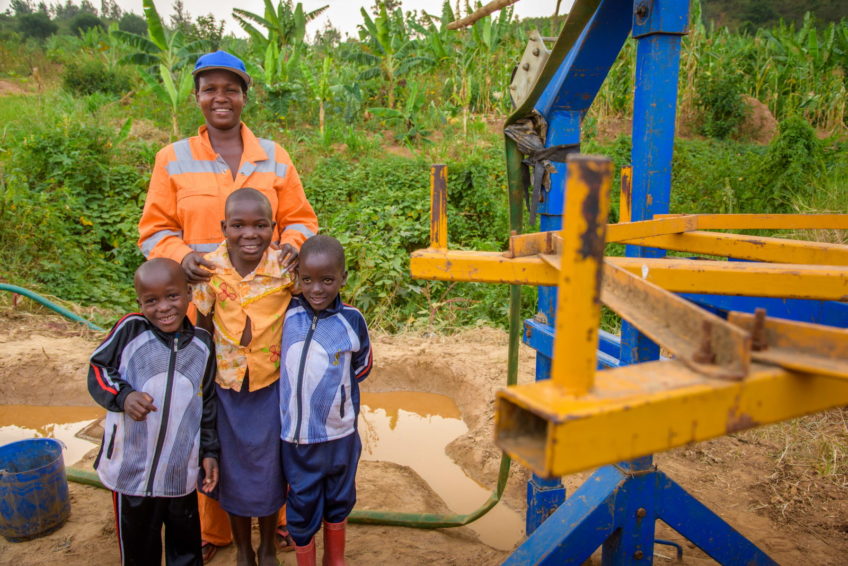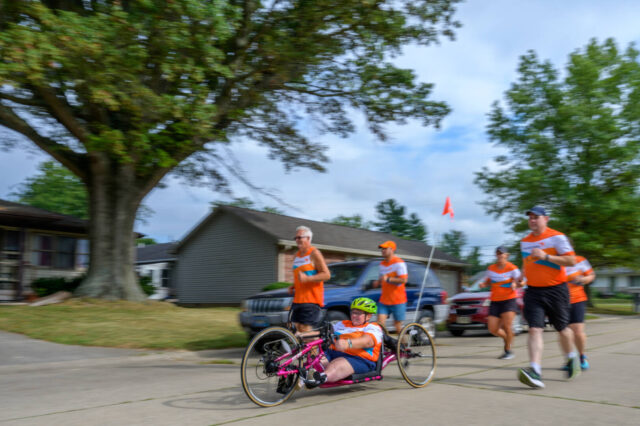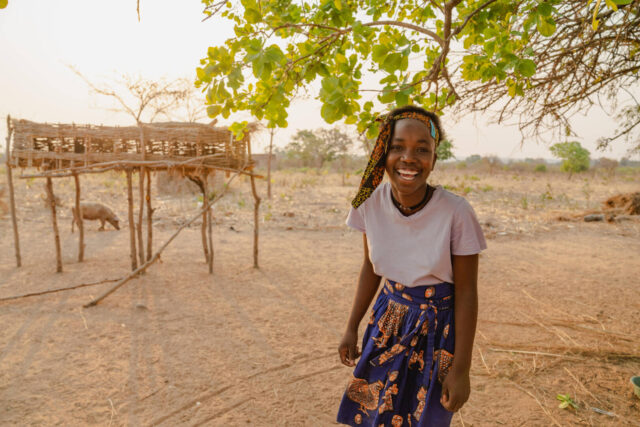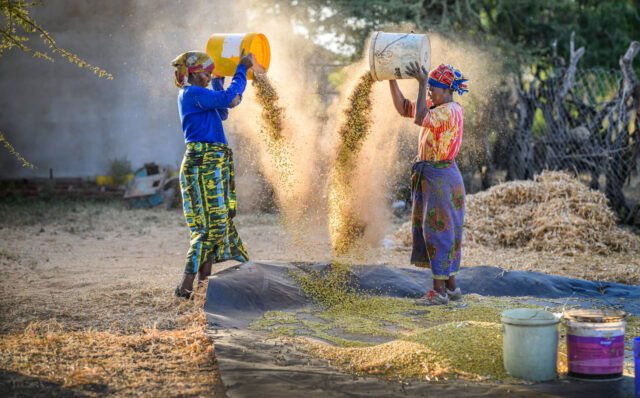On World Water Day, World Vision recognizes the life-saving importance of clean water. And this year, we’re committing to bringing access to clean water to all World Vision program areas in Rwanda by the end of 2022, and to everyone, everywhere we work by 2030 — a total of 50 million people.
“We’re close to realizing the goal of bringing clean water in Rwanda,” says World Vision U.S. President Rich Stearns. “My dream is to finish the job.”
Rich, who will retire at the end of this year, personally committed to the goal, aiming to raise $50 million to reach 1 million Rwandans in 2,000 communities with clean water.
Why set such a goal? It’s because we believe every child deserves clean water at home, at school, and at their community health clinic. “And that’s not a matter of convenience, it’s a matter of life and death,” says Rich.
The burden of dirty water falls on women and girls
Globally, 844 million people live without a safe water supply close to home. Women and girls are most affected by the difficulty in accessing clean water.
Women and girls spend an estimated 200 million hours hauling water every day, with the average African woman walking 6 kilometers to carry home 40 pounds of water. Their daily walk for water robs girls of education and moms of the chance to make a better life for their families. Read about 5-year-old Grace, in Uganda, who walks 6 kilometers for water and struggles to attend school.
Every day, more than 800 children die from diarrhea caused by contaminated water, poor sanitation, and unsafe hygiene practices. With clean water and proper sanitation and hygiene practices, these deaths are preventable. That’s why when World Vision comes to a new community, we often start by providing clean water, then address education, health, and economic empowerment to bring sustainable transformation to the people and communities we serve.
Starting in Rwanda: Universal water access
One million people in 2,000 communities where World Vision works in Rwanda lack basic access to clean water. We are committed to bringing water to every last one of them by the end of 2022.
People like Angelique Hakurinka make us believe this enormous goal can be reached.
Angelique, 33, who lives in Gashora, near Rwanda’s capital, Kigali, is not one of the millions of African women who carry water for long distances each day. Instead, she helped to bring water to her community as a member of a manual well-drilling team trained and equipped by World Vision. (Where appropriate, manually-drilled wells can save 80% of the cost of drilling with a heavy rig.)
For Angelique, who supports three children, and for her community, partnering with World Vision for clean water has been a life-changing experience.
“I thank World Vision,” Angelique says. “Besides giving us water, they gave us a chance to work for ourselves.”
In addition to community partners like Angelique, World Vision has strong government and private sector partners also committed to universal water access. As the leading nongovernmental organization providing clean water access in Rwanda, we have the capability and a proven community-based model for success.
We also have momentum. From 2012 to 2017, World Vision brought water and sanitation services to more than 340,000 people in Rwanda at a cost of $22.6 million. Globally, in the past five years, we’ve brought clean water to 14 million people. Every 10 seconds we reach one new person with clean water.
With the help of our donors and partners, we can meet our 2030 goal of bringing clean water to 50 million people.
An uphill climb to provide water for Rwanda
Rwanda, a small country of 11 million people in East-Central Africa, has made progress in development, including in providing many citizens with access to clean water. Yet, less than half of the rural population has adequate water coverage, and only 61% of the rapidly growing urban population draws water from improved sources. That means about 6 million people in Rwanda struggle to access the water they need.
Rwanda is also still emerging from the shadow of the 1994 genocide when 800,000 to 1 million people were killed in ethnic conflict over three months. World Vision began working in Rwanda that year, responding to intense humanitarian needs as well as needs for healing and peace building — for Christ’s living water as well as clean water.
In all we do in Rwanda, World Vision strives for children and families to have good health, education, child protection, spiritual nurture, and economic opportunities to live out their God-given potential. Community members contribute time and labor to build and manage their water systems. And World Vision teaches people in project areas about sanitation and hygiene practices to prevent water-related diseases.
After two decades of healing and rebuilding since the genocide, Rwanda is focused on eradicating extreme poverty. It’s likely to be the first country in the developing world to solve its water crisis — a stunning achievement. And World Vision wants to ensure it. We have a strong track record in water programming in Rwanda, investing $22.6 million to reach 340,000 people between 2012 and 2017.
Rwanda’s government is similarly committed to providing clean water for all citizens. Its national strategy calls for universal access by 2024. The government recognizes World Vision’s role in providing clean water and has even helped fund some water systems. “Our goals are your goals,” Prime Minister Edouard Ngirente told Rich when they met in Kigali, the capital, in March.
And with clean water, lives are changed and blessings flow.
How you can help end the global water crisis
- Pray: 844 million people worldwide don’t have access to clean water. Join us in prayer for children and families who are thirsty and lack this most basic need.
- Give: What would life be like without clean water? It’s a reality suffered by hundreds of millions of people, including the more than 800 children under 5 who die every day from diarrhea caused by contaminated water, poor sanitation, and improper hygiene. Together, we can free these children from deadly, preventable diseases, liberate women and girls from a life spent gathering dirty, contaminated water, and open the door to education and a promising future.
